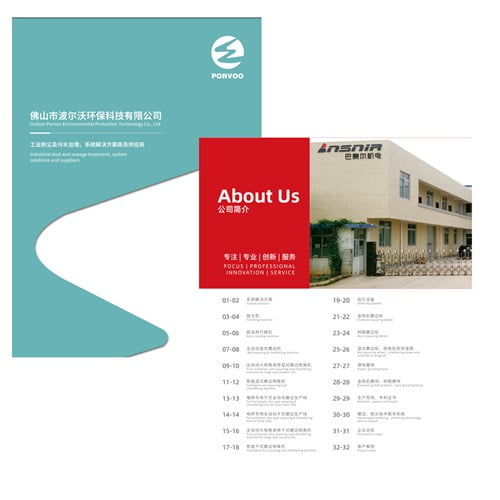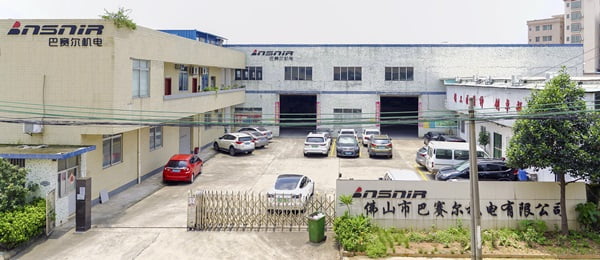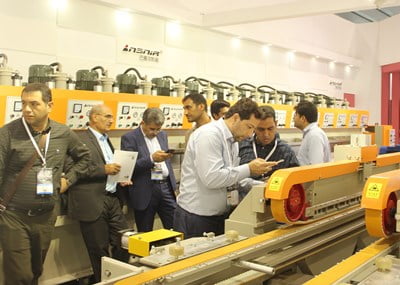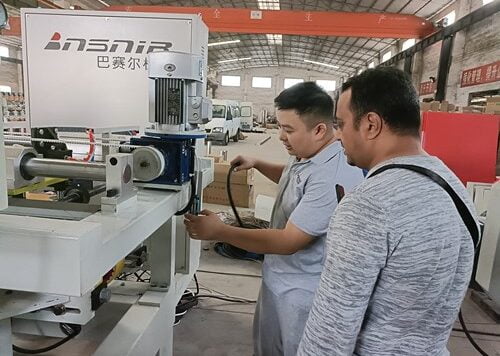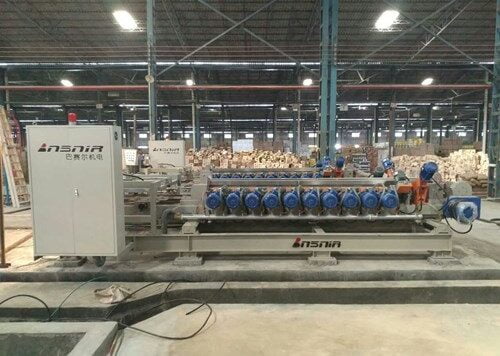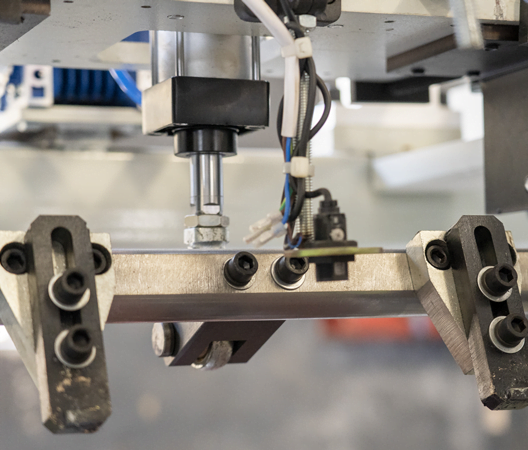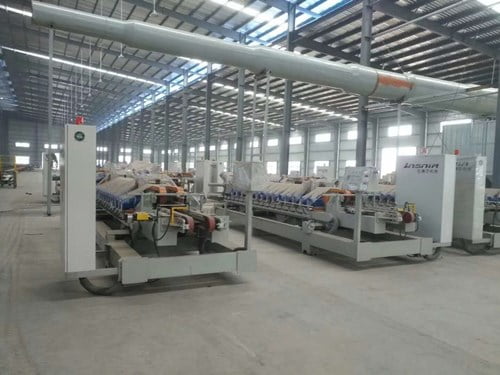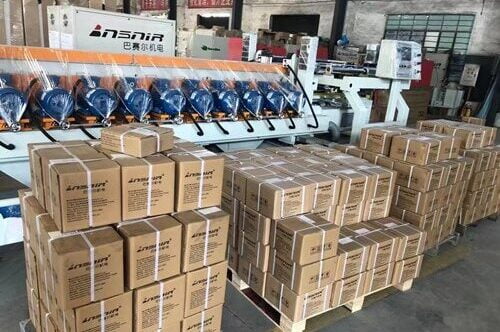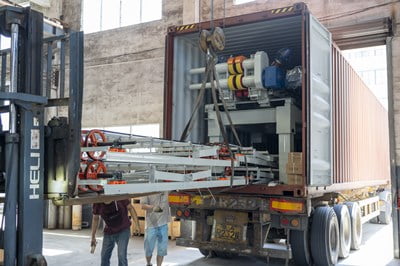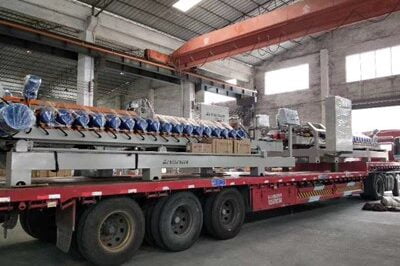Dans le domaine de la fabrication de carreaux de céramique, la précision, l'efficacité et la qualité sont primordiales. L'un des outils qui permet d'atteindre ces objectifs est la molette d'équarrissage à sec BASAIR. Voici un guide complet pour vous aider à comprendre les caractéristiques, les avantages et les types de ces roues innovantes.
Qu'est-ce que les roues de quadrillage à sec BASAIR ?
Les meules d'équarrissage à sec BASAIR sont des outils abrasifs spécialisés conçus pour modifier et parfaire les bords des carreaux de céramique sans utiliser d'eau. Cette approche élimine les problèmes tels que l'absorption d'eau, la moisissure et la décoloration, ce qui les rend idéales pour les carreaux ayant des taux d'absorption d'eau élevés.
Caractéristiques principales des roues de quadrillage à sec BASAIR
Efficacité à grande vitesse
- Conçues pour fonctionner à des vitesses élevées et sous de lourdes charges, ces roues réduisent considérablement les temps d'arrêt et de maintenance, augmentant ainsi la productivité et réduisant les coûts d'exploitation.
Finition de surface supérieure
- Grâce à une force de meulage élevée et à un excellent contrôle thermique, les meules à équarrir à sec BASAIR garantissent une finition de surface délicate et lisse, sans écaillage de l'émail et sans bords noirs.
Personnalisation et compatibilité
- BASAIR offre des formulations personnalisées pour différents types de carreaux et est compatible avec diverses lignes de production de machines à équarrir les carreaux, y compris KEDA, ANCORA, BMR et PEDRINI.
Types de roues de quadrillage à sec BASAIR
Voici un aperçu des différents types de molettes de quadrillage à sec BASAIR :
| Type de roue | Description | Application |
|---|---|---|
| BSR-01 | Meule de ponçage avec une longue durée de vie, un meilleur tranchant et une bonne dissipation de la chaleur. Quantité d'alimentation : 1-2 mm. | Première étape de la modification des bords des carreaux, adaptée aux carreaux à faible absorption d'eau et à dureté élevée |
| BSR-02 | Roue diamantée plus fine utilisée avec le BSR-01. Quantité d'alimentation : 0,5-1,5 mm. | Contrôle l'effondrement du glaçage et réduit la consommation des meules suivantes |
| BSR-03 | Meule à liant résine pour les processus de meulage fin. Assure une surface de travail lisse avec un minimum de marques d'usure. | Procédés de meulage fin et de réparation |
| BSR-04 | Plus délicate que la BSR-03, elle convient aux coupes détaillées. Quantité d'alimentation : 0,01-0,1 mm. | Dernières étapes de l'affinage des bords des carreaux |
Méthodes de collage
Les meules d'équarrissage à sec BASAIR sont disponibles en deux méthodes de collage principales :
Liaison métallique
- Caractérisés par une dureté et une résistance à l'usure élevées, ils sont fabriqués en mélangeant de la poudre de cuivre métallique avec de la poudre de diamant. Cependant, ils peuvent être sujets à des marques d'usure.
Liaison avec la résine
- Offre une surface de travail plus lisse et moins dure, obtenue en mélangeant de la résine et de la poudre de diamant. Idéal pour les processus de meulage fin et garantit une résistance minimale à l'usure.
Principaux éléments à prendre en compte pour choisir la bonne roue
Pour choisir une molette de quadrillage à sec BASAIR, il faut tenir compte des facteurs suivants :
Matériau des carreaux
- Différents matériaux de carreaux nécessitent différents types de meules d'équarrissage. Les matériaux plus durs peuvent nécessiter des meules à jante dentée ou segmentée, tandis que les matériaux plus tendres peuvent être coupés efficacement avec des meules à jante continue.
Finition souhaitée
- La finition que vous souhaitez obtenir sur vos carreaux influencera votre choix. Pour une finition lisse et de haute qualité, les meules à jante continue sont idéales. Pour une coupe plus agressive, optez pour des meules dentées ou segmentées.
Vitesse de production
- Les lignes de production à grande vitesse bénéficient des meules à jante segmentée en raison de leur vitesse de coupe plus rapide et de leur meilleure capacité de refroidissement. Les meules à jante continue sont mieux adaptées aux tâches de coupe plus lentes et plus précises.
Conditions environnementales
- Déterminez si vous utiliserez les meules d'équarrissage dans un environnement sec ou humide. Les meules d'équarrissage à sec BASAIR conviennent aux opérations à sec sans liquide de refroidissement.
Conclusion
Les meules d'équarrissage à sec BASAIR changent la donne dans l'industrie de la production de carreaux de céramique. Grâce à leur efficacité à grande vitesse, leur finition de surface supérieure et leurs options de personnalisation, ces meules garantissent que vos carreaux sont produits avec précision et qualité. Que vous travailliez avec des carreaux de porcelaine ou de céramique, BASAIR a la solution parfaite pour améliorer l'efficacité et la qualité de votre production. Investissez dans les meules d'équarrissage à sec BASAIR et constatez la différence dans votre processus de fabrication de carreaux.

